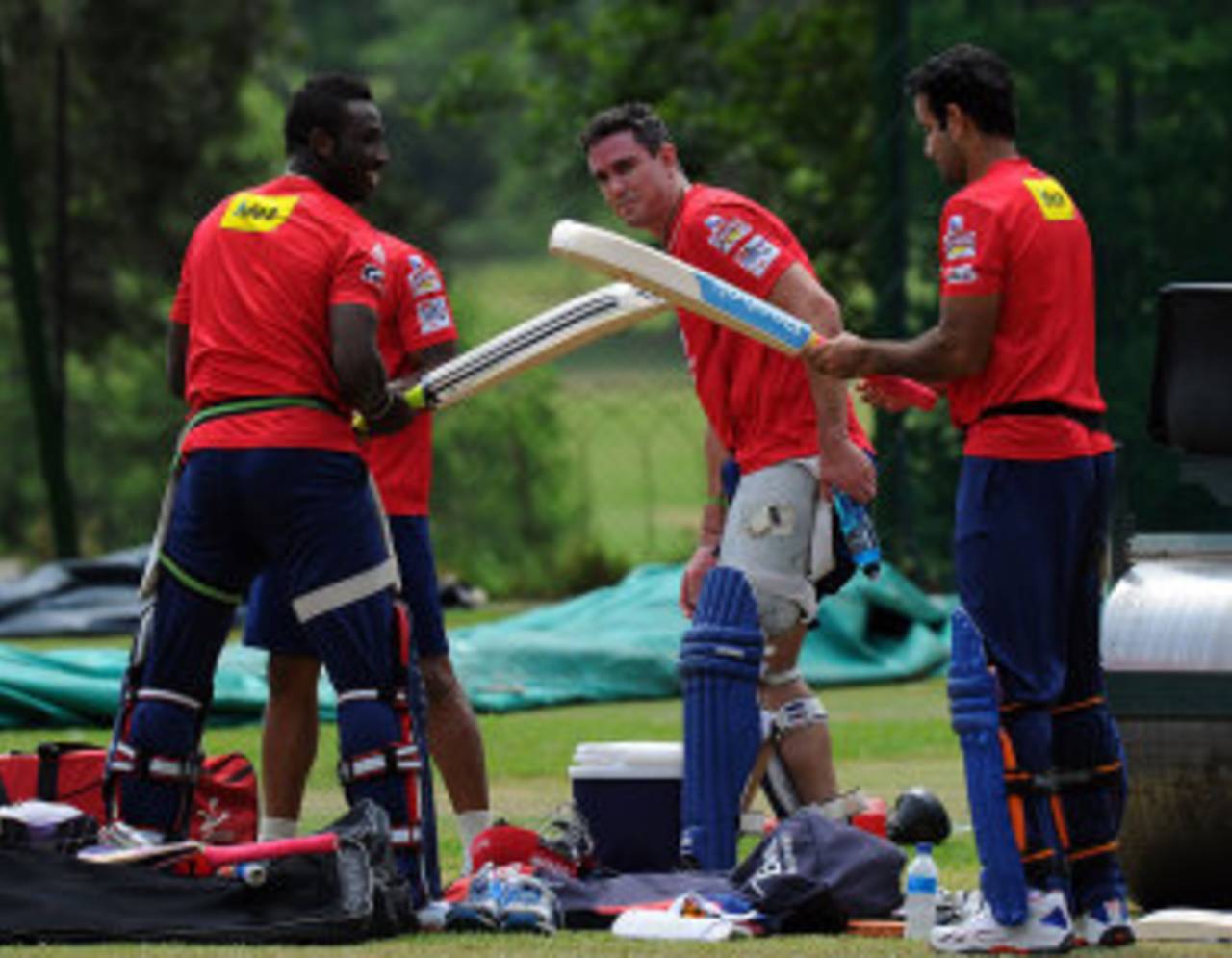Why the ECB was nice to Kevin
They had to pick a squad for India, innit?
Andrew Hughes
Feb 25, 2013, 11:35 PM

After years of being treated like a prince, Kevin Pietersen can't be blamed for mistaking his team-mates' bat inspections to be a guard of honour for him • AFP
For many months, the England team picked itself. So straightforward was the selectors’ job that the ECB even produced a “Ditto Selection” app for David Graveney’s mobile, which at the press of a button, automatically cut and pasted the same team from the last Test and emailed it to cricket journalists. He didn’t even have to leave the golf course.
But this summer everything changed. Defeat was in the air. Defeat and the polyphonic ring tone of a traitor’s Blackberry. In the ECB’s crack Selection Unit, all leave was cancelled. Worried-looking men loosened their ties and paced anxiously up and down in dingy offices, pretending to smoke. September’s pre-India selection meeting was a desperate affair. After seven hours of stilted silence, during which the only sounds were the nervous shuffling of blank pieces of paper and the plaintive chirping of crickets, the selectoral elite of the English game came up with a batting order that read as follows:
“Cook, er, Trott, some chap or other, oh we forgot about Bell, who does that leave? Someone, someone else, Prior.”
The next morning, hard-bitten, tough-talking, ruggedly handsome ECB supremo Giles Clarke was presented with a range of options to deal with this not entirely unexpected shortfall in cricketers who were qualified to play for England in a batting capacity:
1. Call off the tour on the grounds that an epidemic of willow woodworm had rendered all English cricket bats completely unviable as ball-propelling devices.
2. With the help of MI5, MI6 and the BBC Wardrobe Department, create fictitious long-lost identical twins for Cook, Bell and Trott, and, with the judicious use of false moustaches, curly wigs and substitute fielders, pretend that three batsmen were in fact six.
3. Give Kevin a call.
On the face of it, there was only one sensible option. But after chewing things over with his pet tortoise Cecil, Giles realised it wouldn’t work. Ian Bell could not be relied upon to stick to the story and would crack when quizzed by Ravi about the sudden emergence, after years living in the depths of the Amazon rain forest, of his twin brother, Dwayne.
Giles knew that he had no choice. There was no other way. It was the doomsday scenario. The day he had been dreading for so long. He had to be nice to Kevin.
He offered to exonerate Kevin of all charges if Kevin agreed to apologise publicly for something that Giles was prepared to say he hadn’t done. After that, it was a simple matter of instructing the England players to re-like their former team mate on Facebook, and then, at a specially convened reconciliation buffet, Kevin and the England players lined up to exchange gruff manly nods and grunts of cautious acknowledgement.
Now England had at least one batsman who didn’t suffer a panic attack at the sight of cracks in the pitch. But they had a PR problem. The reintegration of Kevin required a Romneyesque flip-flop. So senior England players were dispatched to the offices of all the best newspapers and the Daily Mail, like reluctant children dutifully visiting a distant aunt, to explain, in their bestest talking voices, that what we thought had happened this summer hadn’t really happened at all and that they all loved Kev, almost as much as Kev loves Kev.
On one subject, however, the ECB remained steadfast. Never again would an England player be allowed to dictate where and when he played, or to prioritise domestic Twenty20 cricket over the honour of playing for his country. They had made that perfectly clear to Kevin and Kevin (currently unavailable for pre-tour preparation whilst playing for Delhi) fully supported their uncompromising stance.
Andrew Hughes is a writer currently based in England